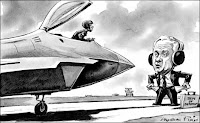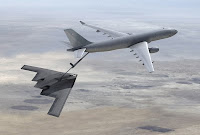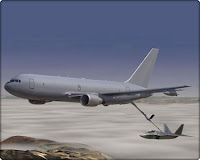
10 July 2008
Babcock International Group PLCAGM Statement and Interim Management Statement
At today’s Annual General Meeting of Babcock International Group PLC (Babcock), the
leading engineering support services company, Gordon Campbell, Chairman will make the
following statement:
“2007/08 was another record year for Babcock, building on the excellent progress made over
recent years. Our Interim Management Statement released this morning, confirms that the
current financial year has started well. Trading conditions across the Group remain healthy
and our business continues to perform in line with our expectations.
As anticipated at the time of the Preliminary Results announcement on 13 May, a number of
significant contracts have been concluded. In total these contract awards are worth over
£800 million and the Group order book now stands at £3.8 billion and the bid pipeline remains
healthy.
Our strategy remains the expansion of our business within the technically based support
services market. Utilising the significant technical expertise and depth of knowledge we have
in submarine support we have made our first move into the international submarine support
market with the award of the Canadian in-service support contract. This provides us with an
excellent position from which we will seek to expand further our international submarine
support business.
The Board believes that, in addition to recent contract wins, the markets in which we operate,
the strong relationships we have with our customers and the technical expertise within our
business all provide us with significant opportunities to achieve growth over the long term.
I have had the privilege of chairing Babcock for nearly eight years and well run companies
plan succession as well as operating their business. I have therefore decided to stand down
later this year and will be succeeded by Mike Turner, the retiring Chief Executive of BAE
Systems, as Non-Executive Chairman. Mike rejoins a company in rude health, one which has
increased its market capitalisation from £87 million following 9/11 to nearly £1.4 billion today.
This has been achieved by a commitment to its business, which requires patience and good
management as opposed to quick-fix financial engineering, and this is the basis for
sustainable growth.
I am certain that this management team under Mike and Peter will continue the progress. As
one of our larger investors said recently ”It is not often we make five times our money and still
have a business which is capable of making the FTSE 100.”
We remain confident that this will be another year of progress for Babcock.”
Interim Management StatementSet out below is the first Interim Management Statement for the period since 30 March 2008,
as required by the UK Listing Authority’s Disclosure and Transparency Rules.
SummaryThe current financial year has started well. Trading conditions across the Group remain
healthy and our business continues to perform in line with our expectations. We remain
confident that this will be another year of progress for Babcock.
MarineNegotiations with the Ministry of Defence relating to the Terms of Business Agreement for
naval support continue to progress well and the key commercial principles have now been
agreed. We expect the final agreement to be signed in the second half of the financial year.
On 3 July the Ministry of Defence signed the manufacturing contracts for the future aircraft
carrier project (CVF). Babcock is a key member of the Aircraft Carrier Alliance and has been
awarded a £675 million contract through to 2016 to construct the bow sections and for the
final assembly and completion of the ships at its dockyard at Rosyth.
On 1 July Babcock announced that the Canadian Government had awarded it a contract to
provide in-service support to their four Victoria class submarines. The initial five year contract
is worth around C$250 million (£125 million) and the Canadian Government has options to
extend this up to a total of 15 years, with a total contract value to Babcock, expected to be in
the order of C$1.5 billion (£750 million). This contract represents Babcock’s first opportunity
to utilise its technical expertise and knowledge of submarine support to move into new
international markets.
Building on the operational success of the mobility weapons-mounted installation kit (MWMIK)
Jackal Patrol Vehicle built by Babcock under an Urgent Operational Requirement, the Ministry
of Defence have ordered a further 72 vehicles. The £20 million contract was awarded as the
100th vehicle from the original 130 vehicle contract was completed.
DefenceThe division continues to trade steadily with all current contracts performing in line with
expectations.
Although both parties have yet to commit to contract, agreement in principle has been
reached with the Ministry of Defence on the commercial terms of The Royal School of Military
Engineering (RSME) PPP contract and finalisation and signature of formal contractual
documentation and financial close is expected shortly. This contract will provide training and
training support, deliver improved living accommodation and new training facilities for RSME
and is expected to be worth around £1.3 billion to Babcock over a 30 year period.
The Hackney Building Schools for the Future (BSF) contract has experienced some delay but
continues to move towards financial close. This is now expected to complete before the end
of July.
RailThe division continues to focus on the recovery in its financial performance with a steady
stream of framework orders continuing to come through.
NuclearIntegration of the Alstec, INS and Strachan & Henshaw businesses to create BNS Nuclear
Services is progressing well. The division continues to make good progress with its current
contracts, and its scale and expertise place it in a strong position to respond to future
opportunities in the nuclear decommissioning, power generation and new build markets.
NetworksIn the Transmission business our alliance contracts with National Grid and EDF continue to
perform in line with expectations and we remain confident of receiving an increase in volume
from EDF. The division has also secured a framework contract to support Scottish and
Southern Energy across their electricity transmission network. The Digital Switchover
programme continues to provide a steady flow of work for the Communications business and
some new opportunities in the mobile telecommunications market are starting to come
through.
Engineering and PlantIn South Africa, our equipment and engineering businesses continue to benefit from the
Government’s focus on infrastructure improvements as well as the healthy natural resources
market. The Powerlines business continues to perform well and has seen further increases in
its orderbook. The rand exchange rate has remained relatively stable and within planning
assumptions.
Financial PositionThe Group’s cash flow performance remains strong and gearing ratios are comfortably within
both internal and external benchmarks.
Other than disclosed above there has been no significant change in the financial position of
the Group since that reported with the preliminary results on 13 May 2008.





























